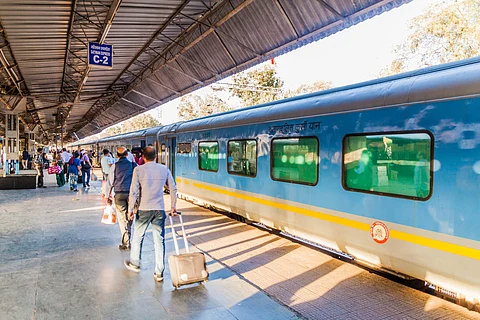
- Destinations
- Experiences
- Stay
- What's new
- Celebrating People
- Responsible Tourism
- CampaignsCampaigns
- SubscribeSubscribe
- Buy NowBuy Now

Starting July 1, Indian Railways will implement a marginal hike in passenger fares, the first in several years. While the increase may appear minimal on paper, it marks a shift in pricing strategy as the railway network simultaneously rolls out stricter Aadhaar-based rules for Tatkal bookings, impacting millions of travellers.
According to official sources, fares for non-AC Mail and Express trains will rise by one paise per km, while AC classes will see an increase of two paise per km.
Certain segments will remain unaffected. There will be no fare hike for suburban passengers and no change in second-class tickets for journeys up to 500 km. For distances beyond 500 km, the fare will rise by half a paise per km. Additionally, monthly season tickets will remain unchanged, offering some relief to daily commuters.
Officials say the small increase is crucial to offset rising costs such as fuel, repairs and improvements without burdening daily commuters. With passenger-kilometres projected at around INR 7.57 billion for the financial year (FY) 2026, the fare hike is expected to generate roughly INR 700 crore in extra revenue over the remaining three quarters. The Ministry of Railways have set a passenger fare target of INR 92,800 crore in FY 26, up from approximately INR 80,000 crore last year.
This fare revision comes alongside a significant digital update: from July 1, only Aadhaar-authenticated users will be able to book Tatkal tickets on the Indian Railway Catering and Tourism Corporation (IRCTC) website or app. The ministry stated that the move is aimed at ensuring that “the benefits of the Tatkal Scheme are received by the common end users.”
According to data available with the Ministry of Railways, 715 crore passengers travelled by Indian Railways between April 2024 to March 2025, including 81 crore passengers who travelled in AC and sleeper class, and 634 crore who were unreserved class passengers.
(With inputs from multiple news reports)
